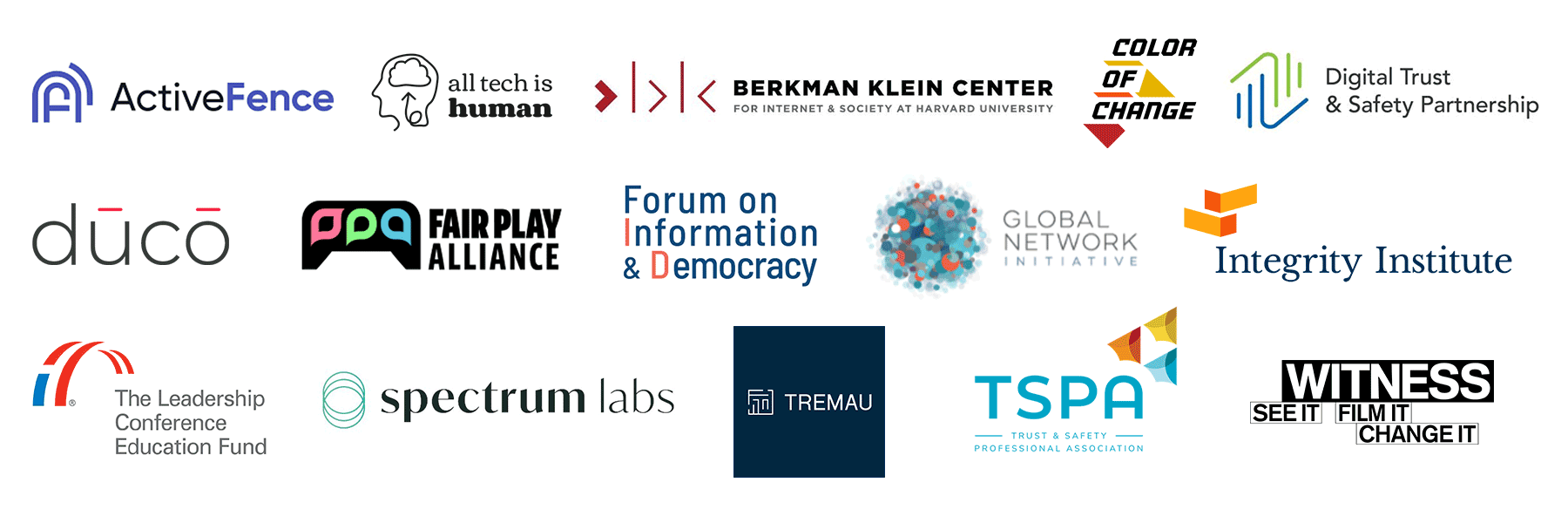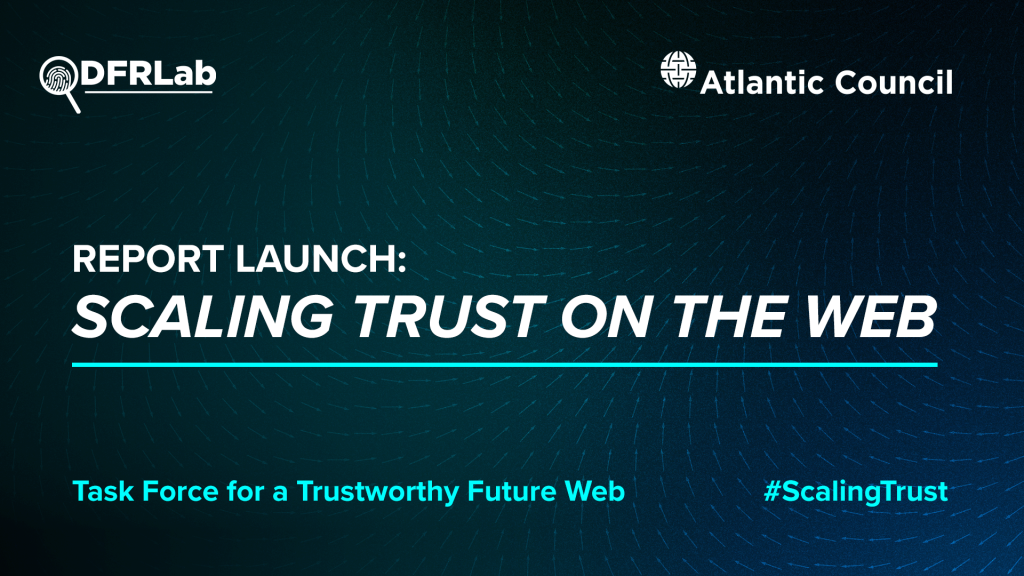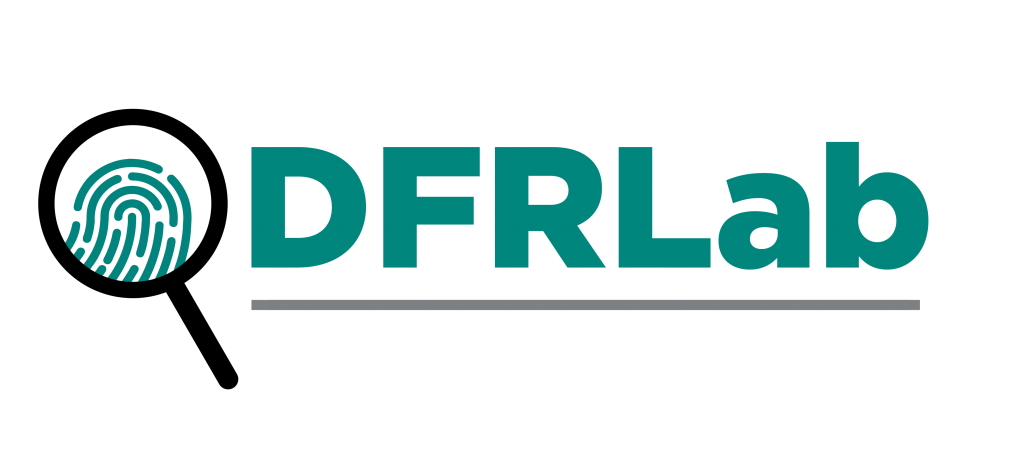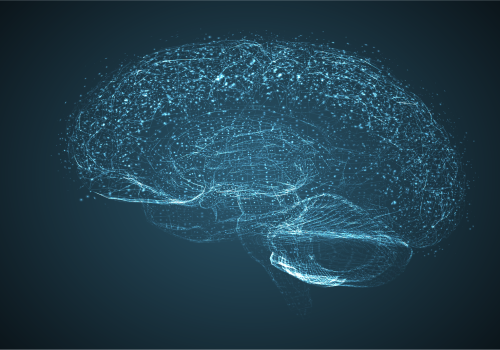The underpinnings of our digital future are currently being molded by the decisions of technology companies, service providers, and governments across the globe. At the same time, a dedicated multistakeholder community has been working tirelessly for decades to understand and mitigate the known harms of our digital age, and illuminate paths forward. To build a digital future designed to scale human dignity and societal progress, it is essential that we facilitate collaboration now between the expanding community dedicated to understanding and protecting trust and safety, the trailblazers envisioning the next frontier of digital tools and systems, and the wider range of rights holders whose futures are at stake.
The Atlantic Council’s Democracy + Tech Initiative at the Digital Forensic Research Lab (DFRLab) has launched a multi-sector Task Force for a Trustworthy Future Web specifically to support such collaboration in 2023 and beyond. Designed to lay the groundwork for stronger cross-sectoral ideation and action in the years to come, the Task Force will set a clear and action-oriented agenda for future online ecosystems that can protect users’ rights, support innovation, and incorporate trust and safety principles.
The Task Force’s leadership comprises a diverse cohort of experts, who bring not only a wealth of subject matter expertise, but also a rare gift for perceiving broad-reaching themes and forecasting future advancements in the dynamic arenas of trust and safety, the evolution of the web, and the interconnected nature of our digital future with societal health and human progress. Reflecting a focus on broad ecosystems, the Task Force will also collaborate with key expert organizations to feed their work and organizational knowledge into the Task Force’s analysis, findings, and recommendations, as well as creating pathways for engagement on targeted areas of inquiry.
The Task Force will produce a culminating report no later than June 2023 and host a series of public and private convenings throughout that month to launch the report and to bring a wide range of stakeholders together in dialogue to envision future possibilities for collaboration. More information about the structure and timeline of the Task Force’s work can be found here. The intended outcomes and overarching principles of the Task Force can be found here.
With generous support from Schmidt Futures and the William and Flora Hewlett Foundation, the Task Force is housed at the Democracy + Tech Initiative at the Digital Forensic Research Lab; an action-oriented center producing timely research, driving policy change, and building a global coalition dedicated to ensuring human rights, transparency, and accountability in our global information ecosystem.
For further information about the Task Force, please contact futureweb@atlanticcouncil.org and stay tuned here for updates in the coming month.
Leadership
The Task Force’s leadership comprises a diverse cohort of experts, who bring not only a wealth of subject matter expertise, but also a rare gift for perceiving broad-reaching themes and forecasting future advancements in the dynamic arenas of trust and safety, the evolution of the web, and the interconnected nature of our digital future with societal health and human progress. Task Force Members include:
Contributing expert organizations
Reflecting a focus on broad ecosystems, the Task Force for a Trustworthy Future Web is pleased to collaborate with key expert organizations to feed their work and organizational knowledge into the Task Force’s analysis, findings, and recommendations, as well as creating pathways for engagement on targeted areas of inquiry.
Contributing Expert Organizations include:

Structure and timeline
Structure
Task Force Members will provide strategic guidance to the task force staff, recommending and introducing potential expert contributors; providing high level feedback on task force outputs; helping to structure analysis and identify findings within targeted areas of inquiry; and supporting the launch and dissemination of the final task force report.
Select task force members have graciously agreed to serve on a Steering Committee that provides in-depth guidance on operational best practices and the effective implementation of the Task Force’s work, as well as conducting initial reviews of work product before it is distributed to the broader Task Force membership. This Steering Committee includes Nighat Dad, Alex Feerst, Camille Francois, Brittan Heller, Rose Jackson, Sidney Olinyk, Eli Sugarman, and Charlotte Willner.
Contributing Expert Organizations and Individuals will provide feedback on draft foundational analyses as well as specific areas for targeted inquiry. The task force will generate diverse avenues for feedback, such as small focus groups, briefings for networks, invitations to provide written feedback on draft findings, and/or surveys.
Timeline
Throughout February, March, and April 2023, based on initial research conducted by Duco, the Task Force will conduct a foundational analysis to support ecosystem mapping, as well as to conduct targeted inquiry into overarching issues identified by Task Force members as applying across that ecosystem. The Task Force will consolidate findings and recommendations from these workstreams and release a final report by the end of May. Over the course of June, the Task Force will conduct private and public convenings with a range of stakeholders to share the Task Force’s findings and galvanize future collaboration in building a trustworthy future web.
Outcomes and principles
Designed to lay the groundwork for stronger cross-sectoral ideation and action in the years to come, the Task Force will set a clear and action-oriented agenda for future online ecosystems that can protect users’ rights, support innovation, and incorporate trust and safety principles.
Intended outcomes
- Define the current components that make up both the immersive and digital information ecosystem(s) and the field working to make them healthier and safer;
- Establish, and build support for, a conceptual framework that can center increasingly scattered and imprecise movements towards a future internet within trust and safety principles and;
- Identify specific interventions in the form of investments, research, programs, policies, training/education, and tools that would shape a more positive future internet.
Foundational principles
- We are focused on crafting a broad, inclusive, ecosystem-level analysis;
- We will honor lived experience as expertise, dedicating time and resources to gathering input from communities of practitioners who work within different sectors of the ecosystems we map;
- We will create pathways to engagement for communities who seek to provide their input;
- We will gather global perspectives, seeking to balance the primacy that US and Western European-centered viewpoints often enjoy;
- We will balance negative potential with positive potential, acknowledging that innovation not only creates known and unknown harms and risks, but also creates possibilities for progress and growth;
- We will acknowledge market forces and economic incentives as key components in any discussion designed to address the functional and practical issues at play in building the future web, while also highlighting the foundational need for a digital world that respects and reflects human rights;
- We will not attempt to ”solve” all potential trust and safety challenges, but rather strike a balance between identifying potential and promising solutions to known problems and documenting other, emerging issues that require additional research and study and;
- We will not recommend new overarching “Principles” without tying them to clear, practical recommendations for mechanisms or investments that would be necessary to support adoption and implementation.

Press release: Task Force for a Trustworthy Future Web launches final report Scaling Trust on the Web
With support from


The Atlantic Council’s Digital Forensic Research Lab (DFRLab) has operationalized the study of disinformation by exposing falsehoods and fake news, documenting human rights abuses, and building digital resilience worldwide.

